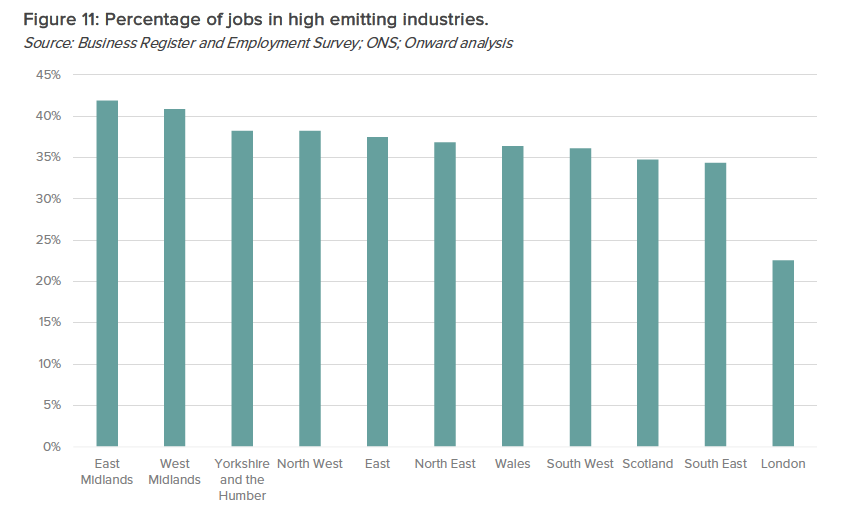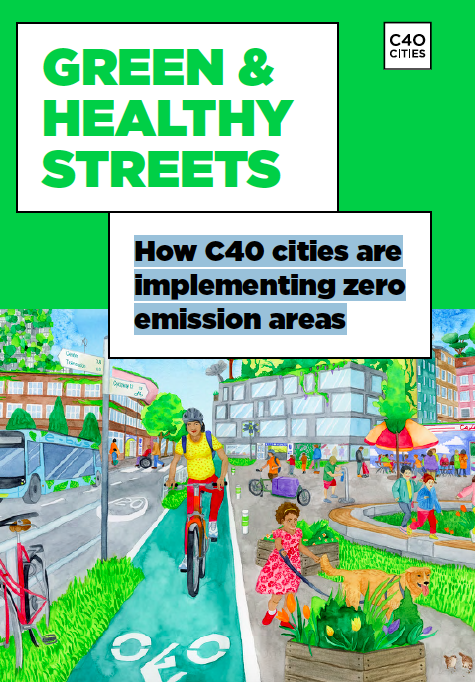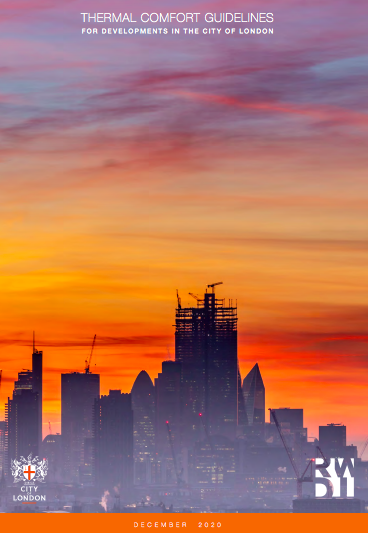Site search:
-
What’s new?
Energy for London Tags
Brent Buildings Camden Carbon Emissions CHP Cities Climate Adaptation Community Heating Community Initiatives Croydon Data DECC Decentralised Energy Distribution ECO Energy Costs Energy Efficiency Enfield FIT Fuel Poverty Funding Green Deal Hackney Haringey Housing Islington Lambeth Library Local Authorities Mayor Newham Ofgem Olympics Photovoltaics Planning RE:FIT RE:NEW Renewable Energy Retrofit Southwark Tower Hamlets Transport Waltham Forest Waste WestminsterEnergy Archives:
- February 2021 (1)
- January 2021 (15)
- December 2020 (15)
- November 2020 (9)
- October 2020 (3)
- August 2020 (5)
- July 2020 (3)
- June 2020 (4)
- April 2020 (10)
- March 2020 (5)
- February 2020 (2)
- January 2020 (3)
- October 2019 (1)
- September 2019 (4)
- August 2019 (2)
- July 2019 (1)
- August 2018 (1)
- November 2016 (8)
- October 2016 (8)
- September 2016 (2)
- August 2016 (8)
- July 2016 (14)
- April 2016 (12)
- March 2016 (16)
- February 2016 (8)
- January 2016 (4)
- December 2015 (1)
- November 2015 (1)
- October 2015 (16)
- September 2015 (3)
- June 2015 (1)
- May 2015 (1)
- April 2015 (1)
- March 2015 (1)
- February 2015 (1)
- January 2015 (1)
- December 2014 (18)
- November 2014 (4)
- August 2014 (8)
- July 2014 (7)
- June 2014 (25)
- May 2014 (8)
- April 2014 (4)
- March 2014 (12)
- February 2014 (7)
- January 2014 (13)
- December 2013 (11)
- November 2013 (15)
- October 2013 (15)
- September 2013 (18)
- August 2013 (5)
- July 2013 (20)
- June 2013 (33)
- May 2013 (8)
- April 2013 (16)
- March 2013 (25)
- February 2013 (14)
- January 2013 (20)
- December 2012 (23)
- November 2012 (23)
- October 2012 (25)
- September 2012 (14)
- July 2012 (12)
- June 2012 (43)
- May 2012 (20)
- April 2012 (8)
- March 2012 (40)
- February 2012 (39)
- January 2012 (40)
- December 2011 (22)
- November 2011 (40)
- October 2011 (33)
- September 2011 (48)
- August 2011 (40)
- July 2011 (58)
- June 2011 (41)
- May 2011 (80)
- April 2011 (38)
- March 2011 (33)
- February 2011 (25)
- January 2011 (24)
- December 2010 (3)
- November 2010 (7)
- October 2010 (6)
- September 2010 (7)
- August 2010 (1)
- July 2010 (2)
- June 2010 (4)
- May 2010 (1)
- March 2010 (3)
- February 2010 (3)
- December 2009 (5)
- November 2009 (2)
- October 2009 (3)
- July 2009 (3)
- June 2009 (1)
- April 2009 (1)
- March 2009 (1)
- February 2009 (1)
- January 2009 (1)
- December 2008 (2)
- October 2008 (1)
- September 2008 (1)
- July 2008 (1)
- March 2008 (2)
- January 2008 (2)
- October 2007 (1)
- September 2007 (3)
- July 2007 (1)
- March 2007 (1)
- February 2007 (3)
- November 2006 (3)
- August 2006 (1)
- February 2006 (1)
- May 2005 (1)
- February 2004 (1)
News
Getting to Zero – regional impacts
6 January 2021: All too often the regional impacts of climate and energy policies are ignored. As we bring in further actions to decarbonise our economy it’s increasingly clear that some parts of the country will benefit or be adversely impacted than other parts – and it’s something that needs to be better understood if we are to ensure that the transition we undertake to a cleaner energy system is a fair transition, taking into account those jobs and industries that will likely need to close.

A new report by centre-right thinktank Onwards, Getting to Zero, touches upon this issue highlighting that: “if we look collectively at all the industries responsible for more than 2% of annual greenhouse gas emissions in the UK, we see that these industries are concentrated more in some parts of the UK than others. On a regional level, East Midlands, West Midlands and Yorkshire and the Humber, have the highest proportion of jobs in high emitting industries: 42%, 41% and 38% respectively. As Figure 11 shows, the industrial and manufacturing heartlands in the Midlands and North are far more likely to experience economic disruption during the net zero transition than the South East and London. This may be positive – in the form of new green jobs, or it may be negative through job losses – but the fact remains some places will be affected more than others.“
The report undertakes further mapping by Parliamentary constituency and sets out that “urban areas have the lowest reliance on high emitting jobs and transport. Notable examples are Islington and Hackney, both of which are areas in the bottom ten for both high emitting employment and transport emissions. This is likely due to the high reliance on the service economy over a production economy and superior public transport links in dense urban areas like London.” This is a first in a series of papers planned by Onward – and worth a quick look at.
London Plan carbon/energy consultations
January 2021: A bit late highlighting – but there are two key GLA planning guidance document out for consultation, linked to new energy policies in the new 2020 London Plan. Both documents have a deadline for response of 15 January 2021.
Whole Life Carbon Assessments London Plan Guidance
This document provides advice on the preparation of Whole Life-Cycle Carbon Assessments, which are required for certain planning applications that measures the carbon emissions resulting from the materials, construction and the use of a building over its entire life, including its demolition and disposal. The consultation document is available here; respond via the following webpage.
The assessment should cover the development’s carbon emissions over its life-time, accounting for:
- its operational carbon emissions (both regulated and unregulated)
- its embodied carbon emissions
- any future potential carbon emissions ‘benefits’, post ‘end of life’, including benefits from reuse and recycling of building structure and materials. See also London Plan Policy SI 7 ‘Reducing waste and supporting the circular economy’.
Posted in News
Tagged Embodied Carbon, London Plan, Planning
Comments Off on London Plan carbon/energy consultations
Climate and The City
1 January 2021: Good to see the Lord Mayor of London highlight the role the ‘City’ will have to play in terms of tackling climate change this coming year.

The City of London has recently adopted a Climate Action Strategy and undertook a number of innovative actions in 2020 – including securing a long terms renewable power purchase agreement (PPA).
London commercial building energy efficiency pilot
21 December 2020: Details of a new project by the Mayor of London looking to drive energy efficiency retrofit in the commercial business sector. “The pilot will work with a Business Improvement District (BID) to recruit 15-20 businesses (including SMEs) with the aim of delivering an overall reduction in energy consumption of at least 30 per cent over 3 years across the participating businesses. The businesses themselves will commit to an upfront 10 per cent target for the pilot year, which we will ask them to update with a more ambitious 2024 target, that is appropriate for their buildings based on the findings of an energy assessment carried out as part of the pilot (expected to be in excess of 30 per cent energy savings). Pilot participants will receive free support from technical experts and high profile recognition for those that meet or exceed their targets.”
This is a much-needed project for London, as policies and programmes to promote energy efficiency in business/commercial buildings are all but absent from national government policy – especially since the closure by the then-Chancellor of the Carbon Reduction Commitment (CRC) scheme (see here for details). It should be mentioned that BEIS have been considering an energy efficiency scheme for small and medium sized businesses for sometime (see here) – with an auction type mechanism currently being considered as the route forward.
Further information on Business Improvement Districts in London can be found here. Initial discussions are going ahead with the Better Bankside BID in Southwark.
In our lifetimes, cities will smell like the countryside
21 December 2020: Opinion piece by Greg Jackson, chief executive and founder of super-innovative energy supplier, Octopus Energy (and also provider of the Mayor’s London Power supply offering) in this morning’s City AM. Greg writes about the potential of heat pumps to not only help decarbonise heating in our homes, but also help drive down pollution, stating that existing “Gas boilers are responsible for over 20 per cent of all the nitrogen oxides in urban areas. These gases are deadly, contributing to asthma, lung cancer, and other serious health problems.” Heat pumps are at present significantly more expensive that conventional gas boilers to install (somewhere between 4-5 times the price) – but I agree with Greg’s following comment that “Octopus’s analysis shows that these costs too can be driven down. A heat pump is really only a fan, a motor and a few pipes with heat-transfer fluid. That is so much simpler than the complexities required for combusting gas. As soon as we’re manufacturing at volume, heat pumps will plummet in price.” Read the full article at City AM here. The analysis referred to would be interesting to see but doesn’t appear to be published on Octopus Energy’s website …as yet?
Islington Sustainable Energy News
December 2020: The latest newsletter from Islington Sustainable Energy Partnership (ISEP) is packed full of interesting information, including Arsenal becoming the first Premier League club to sign up to the UN Sports for Climate Action Framework (more here), the GreenSCIES smart energy project, and the London-wide Ecofurb programme.
West Ham bus garage goes electric
17 December 2020: UK Power Networks (UKPN) press release announcing that they have worked with bus operator Stagecoach to install new electricity infrastructure at West Ham bus garage which will allow for “80kW charge points that will power a new fleet of fully electric zero emission buses. The buses will serve route 323 from Canning Town to Mile End….Philip Heathcote, head of markets at UK Power Networks Services, said: “This project is another signal of the capital’s intent for all buses to be zero-emission by 2037. We are delighted to play a key role in ensuring electric buses can take to the road and provide the area with a clean and sustainable mode of public transport.” Read the full press release here. On London’s plans for zero emissions buses, see TfL website here. Further information is also set out in the Mayor’s Transport Strategy for London.
Posted in News
Tagged Electric Vehicles, Newham, Transport
Comments Off on West Ham bus garage goes electric
Green and Healthy Streets

December 2020: London is included as a case study in this new report by C40 Cities and TUMI (Transformative Urban Mobility Initiative) ‘Green and Healthy Streets: How C40 cities are implementing zero emission areas” which sets out approaches being taken by some leading cities to implement a zero emission area (ZEA). The London case covers the operation and future plans of the Ultra Low Emission Zone (ULEZ) – from 25 October 2021, the existing central ULEZ will expand to create a single larger zone bounded by the North Circular Road (A406) and South Circular Road (A205).
The report sets out that achieving a Zero Emissions Area Achieving requires
a package of mobility measures delivered in a coordinated and ambitious way within a deadline of 2030. Cities are implementing policies and incentives which promote the following outcomes:
- Significantly more trips by walking and cycling
- Public transport priority and connectivity
- Less vehicles overall in the area
- Increasing the take up of zero emission vehicles and phasing out fossil fuel vehicles
Top UK court overturns block on Heathrow’s third runway
16 December 2020: The Guardian reports that “The supreme court has overturned a February judgment that a third runway at Heathrow airport was illegal. It means the project can now seek planning permission, but the ultimate completion of the runway remains uncertain.
“The supreme court ruling marks the latest twist in years of legal and political wrangling over the climate impact and economic benefits of expanding the airport. The decision in February was seen as historic by environmental campaigners, as it was the first significant ruling in the world to be based on the Paris climate agreement, and related cases were subsequently brought against plans to build more roads and gas-fired power plants in the UK.”
““I still don’t think the third runway is going to happen,” said Tim Crosland, a lawyer at Plan B, which brought the legal case against Heathrow. “The really damaging thing [about the supreme court ruling] is the precedent for the other cases.” The Supreme Court ruling can be seen here. The Mayor responded to today’s ruling stating: ““I am disappointed with the court’s decision today to allow Heathrow Airport a third runway which will have a damaging impact on air quality, noise and London’s ability to achieve net-zero carbon by 2030.“
Posted in News
Tagged Carbon Emissions, Heathrow
Comments Off on Top UK court overturns block on Heathrow’s third runway
City Corporation introduces the world’s first development guidelines on thermal comfort

15 December 2020: An interesting new initiative by the City of London who have issued planning guidance to developers on the impact of their developments on the immediate environment, which is particularly relevant to tall buildings which dominate the ‘square mile’. The press release sets out that the “‘Thermal Comfort Guidelines’ are believed to be the first of their kind globally, and will see data on wind, sunlight, temperature and humidity analysed on a seasonal level to predict how the microclimatic character of a place will feel to the public once a scheme is put in place. Tall and major building developers will be required to take account of the potential microclimate and thermal comfort impacts at an early stage in the design process.The analysis will allow for improvements to the quality of outdoor spaces within the Square Mile to better the health and wellbeing of residents, workers and visitors, as well as improving the experience of walking and cycling in the City.”
The guidance can be accessed here (direct download here). Some of the issues of tall buildings in London and their impact on the local environment have been highlighted over the past few years by Dr Julie Futcher and her ‘climate change walks’. More on Julie’s work here and here.
Posted in News
Tagged Buildings, City of London, Planning
Comments Off on City Corporation introduces the world’s first development guidelines on thermal comfort
A Green New Deal for London
15 December 2020: London’s Deputy Mayor for Energy and Environment, Shirley Rodrigues, writes for UK100 on the Mayor’s Green New Deal for London plan. Shirley writes “In practice, the Green New Deal means we will:
- Work towards getting all London’s buildings to Net Zero emissions
- Modernise our public transport, make our city greener and better able to cope with the impacts of a warmer climate
- Build the economic, social, and political foundations so London’s green economy can grow. This means mobilising green finance, planning for a just transition and calling on government to give us powers and resources to meet the city’s climate targets by 2030.”
For more on the Mayor’s Green New Deal, see the following post.
Climate-related incidents affecting eight in ten councils
11 December 2020: The Local Government Association (LGA) latest research on the effects of climate change on local authorities shows that eight in ten councils have suffered climate-related incidents in the last five years. The findings emerge from a survey (conducted to October 2020) of Directors of Environment or equivalent of all councils in England which is available here.
Nine London boroughs responded to the survey. The results are aggregated, so no specific London-results are set out. The survey had roughly a 30 per cent response rate, with a majority of councils who had declared a climate emergency responding. Key findings include:
- Around 72 per cent of local authorities surveyed were measuring their own scope 1 and 2 emissions, and 36 per cent were measuring their own scope 3 emissions.
- Over 80 per cent of responding councils indicated that there was an executive council member of their authority whose portfolio specifies a lead role on climate change
- The areas of expertise and skills most frequently identified as in need of further development were green economic planning (95 per cent) and low carbon procurement and low carbon budgeting (92 per cent).
- The most frequently identified barrier to tackling climate change was funding (96 per cent), followed by legislation or regulation (93 per cent) and lack of workforce capacity (88 per cent).
Much more detail set out the survey results.
Posted in Library, News
Tagged Local Authorities, London Councils
Comments Off on Climate-related incidents affecting eight in ten councils

